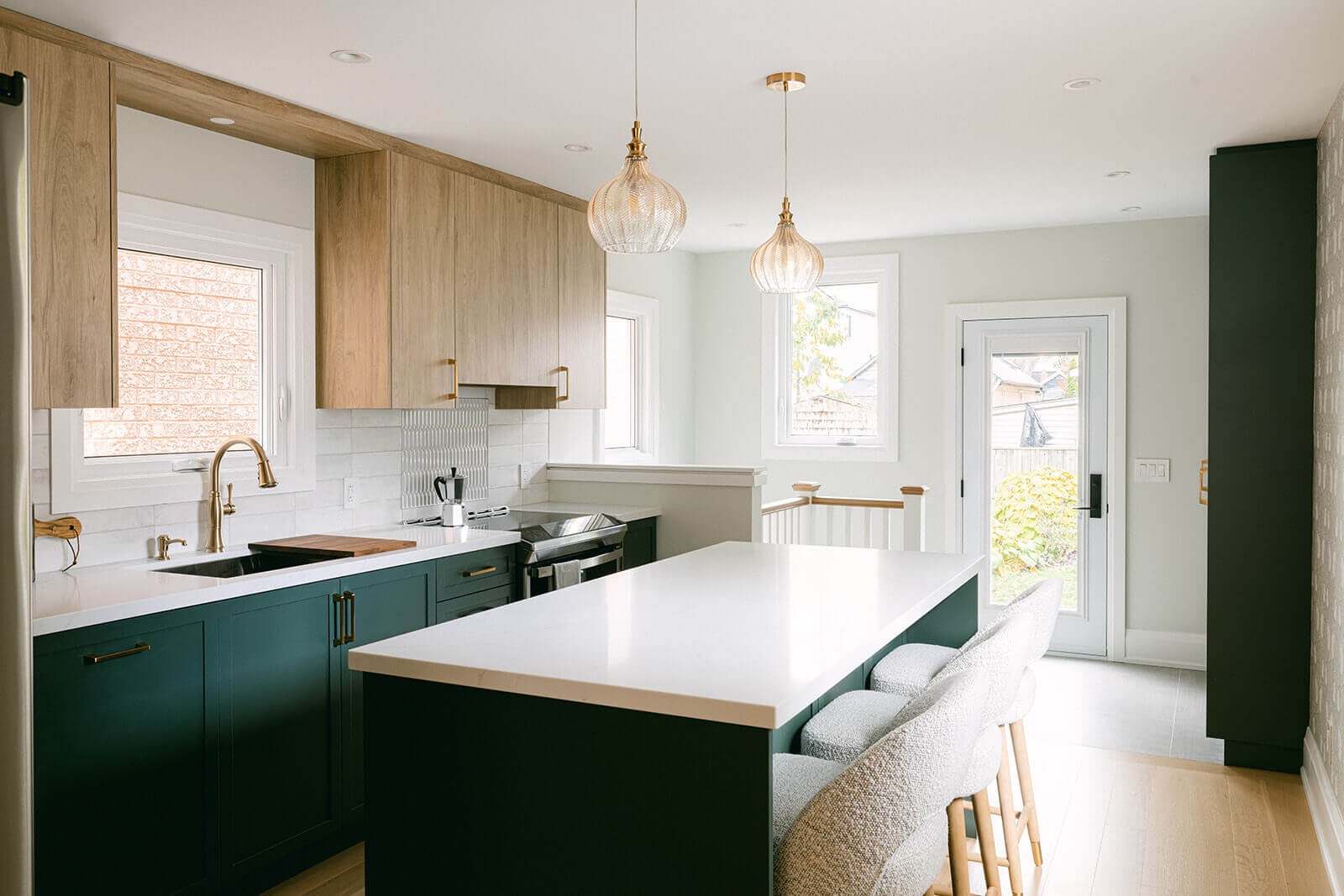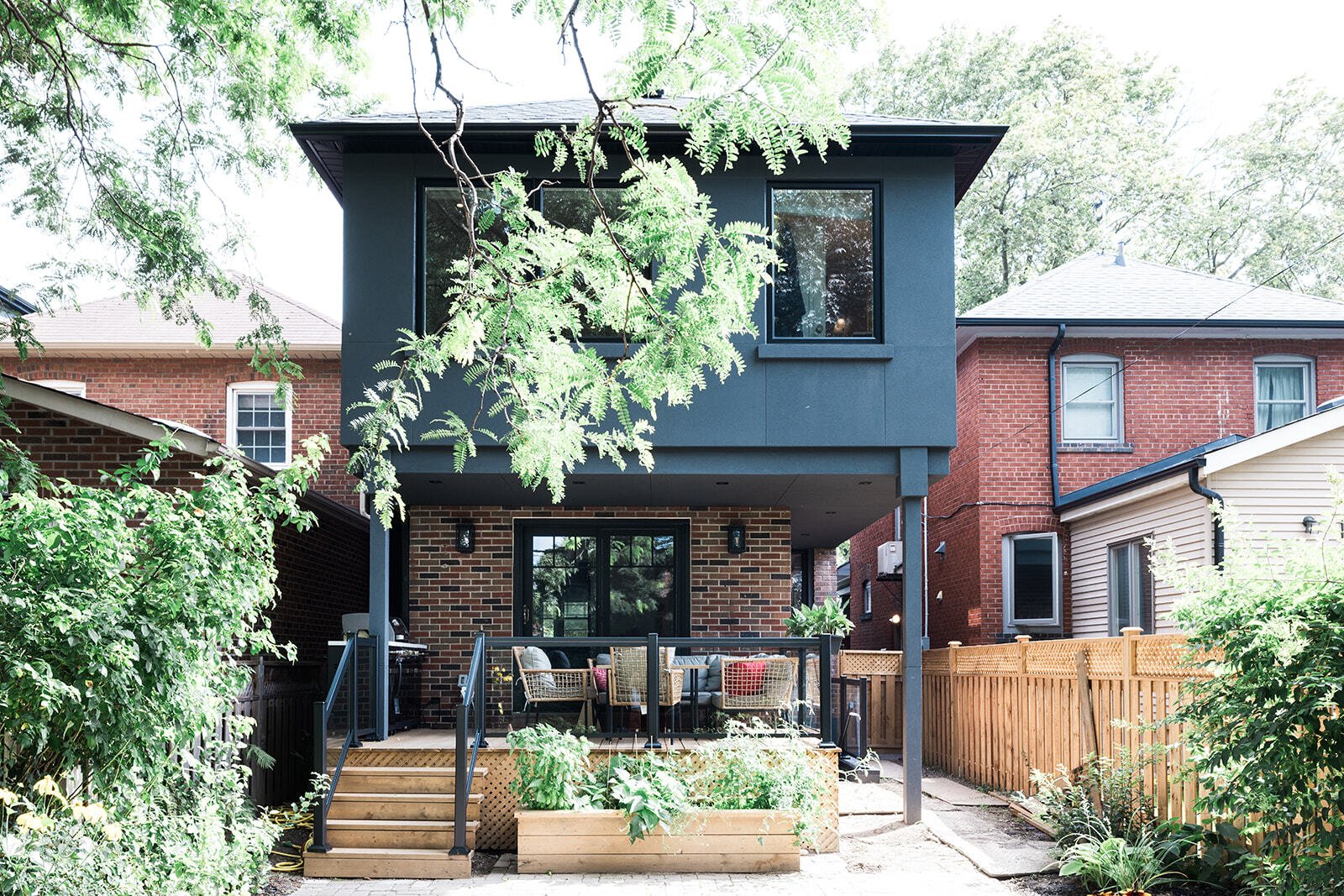7 Tips for Buying a Home in Toronto
Buying a home in Toronto is a significant milestone - one that combines excitement with uneasiness. As one of the most vibrant and dynamic cities in the world, Toronto offers an abundance of neighbourhoods, property types and price ranges. Whether you're a first time-buyer starting on this journey, or a previous homeowner looking to upgrade, these seven essential tips will empower you to navigate Toronto's real estate landscape with confidence!
1. Start Saving Early
Why it matters:
Buying a home is not just a simple transaction; it is a significant financial commitment that requires careful planning and preparation. Starting to save early is crucial in this process as it allows you to build a substantial down payment. Having a solid down payment can positively impact your mortgage terms, making your monthly payments more manageable and improving your overall affordability. By saving early, you are setting yourself up for success in the home buying journey and ensuring a more secure financial future.
Action Steps:
- Create a budget: When it comes to buying a home, understanding your financial situation is key. Take the time to thoroughly assess your income, expenses, and financial goals. Consider all your monthly bills, debts, and discretionary spending to get a clear picture of your financial health. From there, you can allocate a specific portion of your earnings towards your home savings fund. A well-planned budget is the foundation for a successful home buying journey.
- Automate Savings: Set up automatic transfers to a dedicated savings account and treat it like a non-negotiable expense. By automating your savings, you're not only making it easier to consistently set money aside for your down payment, but you're also creating a disciplined approach to building your financial future. This simple yet effective strategy will help you stay focused and motivated on your journey to purchasing a home in Toronto.
2. Have a budget
Why it matters:
Understanding your budget is essential when embarking on the journey of buying a home in Toronto. Not only does it help you narrow down your options and prevent overspending, but it also ensures that you are focusing on homes that fall within your financial capacity. By carefully assessing your budget, you can determine the maximum amount you can comfortably afford to spend on a property, taking into account factors such as your income, existing debts, and lifestyle expenses. This knowledge sets realistic expectations and helps you make informed decisions throughout the buying process.
Action Steps:
- Calculate Affordability: Consider your income, existing debts, and lifestyle expenses when determining your budget for buying a home in Toronto. Utilizing online calculators can be a helpful tool in estimating how much you can comfortably afford to spend on a property. These calculators take into account factors such as your monthly income, existing debts, and typical expenses, giving you a clearer picture of your financial capacity. By accurately assessing these financial aspects, you can set realistic expectations and ensure that you are searching for homes within a price range that aligns with your financial goals.
- Factor in Additional Costs: When budgeting for your new home in Toronto, it's crucial to consider more than just the purchase price. Insurance is essential for protecting your investment and should not be overlooked. Maintenance costs, such as repairs and upgrades, should also be anticipated to ensure your home remains in optimal condition. Lastly, utilities like electricity, water, and gas should be budgeted for to avoid any surprises down the road.
3. Research neighbourhoods
Why it matters:
Selecting the perfect neighbourhood is more than just about location; it's about envisioning your future and creating a sense of community. The neighbourhood you choose will not only influence your daily routines and quality of life but also have a significant impact on the value of your property and its potential for resale. By carefully researching and exploring different areas in Toronto, you can find a neighbourhood that aligns with your lifestyle, preferences, and long-term goals. Consider factors such as proximity to work, schools, amenities, and public transportation to ensure that you're making a well-informed decision that will enhance your overall homeownership experience. Remember, the right neighbourhood can truly make a house feel like a home.
Action Steps:
- Explore Different Areas: When it comes to finding the perfect neighbourhood in Toronto, taking the time to truly explore different areas can make all the difference. Step out of your comfort zone and venture into various neighbourhoods to get a feel for the community, talk to locals, and immerse yourself in the surroundings. Consider factors such as the proximity to your workplace, the availability of schools for your children, the convenience of amenities like grocery stores and parks, and the accessibility of public transportation. By actively exploring different areas and engaging with the local environment, you can gain valuable insights that will help you make an informed decision about where you want to put down roots and call home.
4. Work with a knowledgable realtor
Why it matters:
A skilled realtor can be your invaluable ally in the complex world of real estate transactions. Not only do they possess in-depth knowledge of the Toronto market, but they also have a keen understanding of the buying process, legalities, and negotiation tactics. By working with a knowledgeable realtor, you can benefit from their expertise in identifying potential properties that meet your criteria, negotiating the best price on your behalf, and providing valuable insights that can help you make informed decisions. Their guidance and support throughout the buying journey can make a significant difference in securing the right home for you and ensuring a smooth and successful transaction.
Action Steps:
- Contact Realtors: When selecting a realtor to assist you in the Toronto market, it is essential to choose someone with a proven track record and positive client testimonials. A reputable realtor will not only have extensive experience in navigating the Toronto real estate landscape but will also have a deep understanding of the local market trends and intricacies. By asking about their past successes and client feedback, you can gain valuable insights into their professionalism, reliability, and ability to deliver results.
- Communicate Your Needs: It is crucial to communicate your needs clearly when working with a realtor in the Toronto market. Be upfront about your preferences, budget constraints, and must-haves in a home. By clearly outlining your criteria, you can help your realtor narrow down the search and find properties that align with your specific requirements. Whether you prioritize a certain neighbourhood, a specific number of bedrooms, or essential features like a backyard or a renovated kitchen, expressing your needs will ensure that you are presented with options that meet your expectations.
5. Consider future growth and development
Why it matters:
By staying informed about upcoming developments and changes in the neighbourhood, you can strategically align your investment with your long-term goals. Whether it's new infrastructure projects, zoning changes, or revitalization plans, keeping a pulse on the evolving landscape can help you make a sound investment decision. By understanding the potential growth and development in the area, you can ensure that your chosen property not only meets your current needs but also holds promising value for the future. This proactive approach to anticipating neighbourhood changes will not only safeguard your investment but also position you for long-term success in the Toronto real estate market.
Action Steps:
- Research City Plans: Dive deep into the intricate details of city development plans, upcoming infrastructure projects, and potential zoning changes in the neighbourhoods under your consideration. By staying well-versed in the future landscape of the area, you can strategically position yourself for long-term growth and investment success. Seek out neighbourhoods with planned enhancements and rejuvenation initiatives to ensure that your selected property aligns perfectly with your future aspirations.
- Evaluate Transit Options: When considering purchasing a home in Toronto, it's essential to evaluate transit options beyond just the immediate convenience. Access to public transportation and proximity to major highways not only impact your daily commute but also play a significant role in determining the property's value and potential for appreciation. Properties located near efficient transportation systems tend to have higher demand and resale value, making them a smart investment choice. Additionally, easy access to public transit means greater convenience for residents, reducing reliance on personal vehicles and contributing to a more sustainable and environmentally friendly lifestyle.
6. Prioritize a Home inspection
Why it matters:
A thorough home inspection is a crucial step in the home buying process as it helps uncover potential issues that may not be visible to the naked eye. By hiring a qualified inspector, you can ensure that the property is structurally sound, free of major defects, and meets all safety standards. This thorough examination can save you from unexpected expenses down the road and give you peace of mind knowing that you are making an informed decision. From identifying hidden water damage to checking the electrical and plumbing systems, a home inspection provides valuable insights that can help you negotiate repairs or adjustments before finalizing the purchase. Prioritizing a home inspection is not just about protecting your investment but also about ensuring the long-term safety and comfort of your future home.
Action Steps:
- Hire a Qualified Inspector: When it comes to hiring a qualified inspector for your home inspection, it's essential to choose someone who is certified and experienced in assessing the property's condition. A certified home inspector will thoroughly examine the structural integrity, electrical systems, and plumbing components of the property to identify any potential issues or safety hazards. By entrusting this crucial task to a knowledgeable professional, you can gain valuable insights into the overall health of the property and ensure that it meets all necessary safety standards. Investing in a comprehensive home inspection not only protects your financial investment but also provides you with the peace of mind that comes from knowing you are making a well-informed decision about your future home.
- Review the Report: Reviewing the inspection report is a critical step in the home buying process. It provides valuable insights into the condition of the property and can help you make informed decisions before finalizing the purchase. Take the time to carefully go through the report and pay attention to any red flags that may indicate potential issues. Whether it's structural concerns, safety hazards, or necessary repairs, addressing these issues upfront can save you from unexpected expenses and ensure the long-term safety and comfort of your future home. Don't hesitate to discuss any concerns with your realtor and the inspector to fully understand the implications of the findings. By proactively addressing any red flags before closing the deal, you can confidently move forward with your home purchase knowing that you've taken the necessary steps to protect your investment.
7. Understand Closing Costs
Why it matters:
Understanding closing costs is essential for effective budgeting when purchasing a home. These expenses can include a variety of fees such as legal fees, land transfer taxes, title insurance, property taxes, and appraisal fees. By being aware of these costs upfront, you can avoid any surprises and plan your finances accordingly. It's important to factor in these expenses when determining your overall budget for buying a home to ensure that you are financially prepared for the closing process. Additionally, working closely with your realtor and mortgage lender can help you navigate these costs and make informed decisions to protect your investment. Action Steps:
- Learn About Closing Costs: Closing costs include legal fees, which cover the cost of legal services for reviewing contracts, conducting title searches, and ensuring a smooth closing process. Land transfer taxes are government fees imposed on the transfer of property ownership, varying by province and municipality. Title insurance protects buyers and lenders from any defects in the title of the property, providing peace of mind and financial protection. Other administrative expenses may include appraisal fees, home inspection costs, and any additional charges related to the closing process. It's important to be aware of these costs upfront to budget effectively and avoid any surprises during the home buying process.
- Budget Accordingly: Ensure that you carefully budget and allocate funds specifically for closing costs to prevent any last-minute financial surprises as you near the final stages of purchasing your dream home. By setting aside a separate amount for these expenses, you can confidently navigate the closing process with peace of mind, knowing that you are financially prepared for any additional fees that may arise. Planning ahead and having a clear understanding of the various costs involved in closing a real estate transaction will not only help you manage your finances effectively but also ensure a smooth and stress-free experience as you move towards homeownership in Toronto.
Conclusion
Whether you're a first-time homebuyer or a seasoned investor, purchasing a property in Toronto is a significant decision that requires careful consideration. The dynamic real estate market in this vibrant city demands a strategic approach to ensure that your investment aligns with your long-term goals. By following the 7 essential tips outlined in this guide, you can equip yourself with the knowledge and tools needed to make informed decisions and secure the home of your dreams.
From staying informed about future growth and development in the neighbourhood to prioritizing a thorough home inspection, each step outlined in this guide is crucial for a successful home buying experience. By researching city plans, evaluating transit options, and understanding closing costs, you can navigate the complexities of the Toronto real estate market with confidence and financial readiness.
Ultimately, by implementing these essential tips, you can position yourself for long-term success and make a wise investment that not only meets your current needs but also holds promising value for the future. With careful planning, research, and informed decision-making, you can secure your dream home in Toronto and embark on the exciting journey of homeownership in this thriving city.







